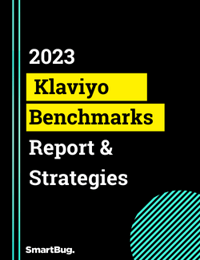
By Kira Renee
If you’re running an e-commerce business, chances are you're already using some form of email marketing to communicate with your customers. But how do you know if your email drip campaigns are performing as well as they could be?
In this article, we'll dive into the differences between drip campaigns and lead nurture campaigns and explain why understanding these differences is crucial for optimizing your email marketing efforts. We'll also walk you through the anatomy of an effective drip campaign and share some common campaigns you can start using today.
But that's not all—we'll also be looking at the analytics and benchmarks you should be tracking to measure the performance of your drip campaigns. By the end of this post, you'll have a better understanding of how to create and optimize drip campaigns that engage your subscribers, drive conversions, and ultimately grow your business.
Whether you're just getting started with email marketing or you're looking to take your campaigns to the next level, this post is for you. Let's dive in!
Drip Campaigns vs. Nurture Campaigns
Email drip campaigns and email nurture campaigns are two different types of automated email marketing campaigns that serve different purposes in the e-commerce industry.
An email drip campaign is a series of automated, pre-written emails sent to a subscriber based on a specific trigger or action. For example, a drip campaign might be triggered by a subscriber signing up for your newsletter, abandoning a shopping cart, or making a purchase. The goal of an email drip campaign is to provide targeted information and offers to contacts over time with the goal of driving conversions and sales.
In contrast, an email nurture campaign is designed to provide your contact list with relevant and valuable information that can help them make informed purchasing decisions. These campaigns are often longer-term than drip campaigns and focus on building relationships rather than driving immediate sales. The goal of an email nurture campaign is to establish trust and credibility by providing helpful content and resources.
Depending on the specific goals of an e-commerce business, both types of campaigns can be valuable tools for engagement and driving sales. Today we are going to focus on drip campaigns, the best email marketing tactic for driving immediate sales and conversions.
Why Are Drip Emails Essential for E-Commerce Email Marketing?
Email drip campaigns allow businesses to communicate with their customers on a regular basis, keeping them engaged and informed about new products, promotions, and offers. Here are some key reasons why email drip campaigns are so important for e-commerce:
1. They Build Relationships
Odds are you talk to your friends relatively frequently, and staying in touch helps keep those friendships growing. The same applies to your relationships with your customers. By providing valuable information and offers, businesses can establish trust and credibility with their customers, which can ultimately lead to increased loyalty and repeat purchases. The more a customer feels like they know your brand, the more likely they are to buy from you.
2. They Increase Engagement
Just like with a friend, having two-way conversations and doing activities together builds your relationship. Drip campaigns can help support your customer engagement by providing relevant and interesting content. By sending segmented emails based on customer behavior and preferences, brands can increase the chances that their emails will be opened and read.
3. They Increase Sales
The most highly effective way an e-commerce brand can increase its sales is with drip campaigns. By sending personalized offers and promotions to the right customers at the right time, brands can encourage customers to make a purchase they might not have otherwise made or discover a product they may not have otherwise found.
4. They Save Time
The beauty of drip campaigns is that they can be pre-built and automated so that brands can save time and resources, focusing on other strategies and initiatives while your campaigns are making you money in the background.
Anatomy of an Effective Drip Campaign
Now that we understand why drip campaigns are essential for your brand, how do we develop an effective campaign that drives results?
A successful drip campaign requires strategic planning and execution to achieve its desired outcome. Let’s dive into the anatomy of what makes a drip campaign the most effective.
Value
First and foremost, you should always come back to asking yourself, “How does this campaign provide value to my customer?” Your customers don’t want to be bombarded with emails they don’t care about. In fact, overcommunicating could potentially harm your customer relationship if you're talking at them without delivering something valuable. This could be educational content, exclusive discounts, or personalized product recommendations. Whatever the value add is, this will help build trust with your customers and drive sales.
Personalization
Personalization plays a key role in adding value to your campaign. Using customer segmentation to deliver targeted messaging that resonates with that segment can increase open rates and click-through rates. Personalization can include recommendations based on past purchases, targeted discounts, or abandoned cart reminders.
Timing
The timing of your email messages is critical. Understanding who your customers are and when they shop will enable you to be strategic in your communication timing. Some timing factors to consider are time zones, holidays, and weekends versus weekdays. As you begin to develop a deeper understanding of your customers through data, you can even pinpoint which days or times of day your customers are more likely to purchase.
Call to Action
Every email in your drip campaign should have a clear and compelling call to action (CTA). Your CTA should be easy to find, and the action you want your audience to take should be clear. Focus on one primary CTA per email to keep your customer focused on the action you want them to take.
Essential Email Marketing Drip Campaigns and Benchmarks
There are several common email marketing drip campaigns that e-commerce brands use to engage with their customers and drive sales. If you want specific benchmarks and strategic recommendations based on your industry, read our 2023 Klaviyo Benchmarks Report and Strategy. For now, here are just a few common drip campaigns we recommend for all our clients:
1. Welcome Series
Your welcome series is the first touchpoint you have with your contacts in their inbox. The campaigns consist of a series of emails sent to new subscribers to welcome them to your brand and introduce them to the products and services you offer.
Expert Tip: If your form includes a method of collecting zero-party data such as product preferences, you can customize your welcome email to highlight the products they are more interested in and most likely to buy.
Benchmarks:
|
Welcome Email Flow |
|||
|
Open Rate |
Click-Through Rate |
Conversion Rate |
Revenue per Recipient |
|
55.61% |
6.52% |
2.38% |
$2.54 |
2. Abandoned Cart Series
An abandoned cart series is a drip campaign sent to customers who added items to their cart but did not complete their purchase. The goal of this drip campaign is to encourage your customer to complete their purchase.
This drip campaign is one you should consistently have running because these emails have the highest revenue potential. Your customer has already browsed your site and identified which products they want, which means the hardest part is done! These reminders often serve as that final push over the finish line.
Expert Tip: If by your final email in this flow your customer has still not made the purchase, try using an incentive such as a discount or loyalty points to help seal the deal.
Benchmarks:
|
Abandoned Cart Email Flow |
|||
|
Open Rate |
Click-Through Rate |
Conversion Rate |
Revenue per Recipient |
|
49.89% |
6.98% |
3.55% |
$3.58 |
3. Post-Purchase Series
Once your customer has placed their order, they should be funneled into a post-purchase series. This drip campaign thanks your customer for their order and provides a secondary offer or value add. Depending on your brand, this could be a discount off their next purchase, loyalty points, or even an exclusive resource related to the product they purchased. For example, if they bought a pair of shoes, you could send them a guide on how to clean and care for the shoes so they last longer.
Benchmarks:
|
Post-Purchase Email Flow |
|||
|
Open Rate |
Click-Through Rate |
Conversion Rate |
Revenue per Recipient |
|
61.05% |
3.99% |
0.46% |
$0.30 |
4. Browse Abandonment Series
Unlike the cart abandonment flow, the browse abandonment flow is sent to shoppers who have browsed through your e-commerce store without even adding anything to a cart. The goal of this campaign is to re-engage these shoppers and encourage them to return to your store and make a purchase. These emails can be targeted based on the product page they were viewing before they bounced off.
Expert Tip: These emails are an excellent opportunity to provide more detailed information on products, answering frequently asked questions and re-enforcing the value add.
Benchmarks:
|
Browse Abandonment Email Flow |
|||
|
Open Rate |
Click-Through Rate |
Conversion Rate |
Revenue per Recipient |
|
55.33% |
5.84% |
0.96% |
$1.01 |
Automated email marketing drip campaigns could be the missing factor you need to accelerate your store revenue and increase return on investment. However, mastering your drip campaigns is not a one-and-done process. It is vital to practice continuous A/B testing and analyze your analytics so you can continually adapt and achieve the best possible results. If you’re looking for support to achieve these efforts, chat with our e-commerce experts who specialize in email marketing for brands across all industries. We’re ready to help!
About the author
Kira Renee Kira was formerly our Product Marketing Manager at SmartBug. She believes in a people-first and data-driven marketing approach. Previously working with many reputable brands, building their online brand presence and teaching companies how to enhance their marketing strategy to be customer-centric. When she's not creating a stellar marketing strategy, you can find her enjoying a crisp sour beer surrounded by her hundreds of plants and receiving cuddles from her Labradoodle. Read more articles by Kira Renee.







